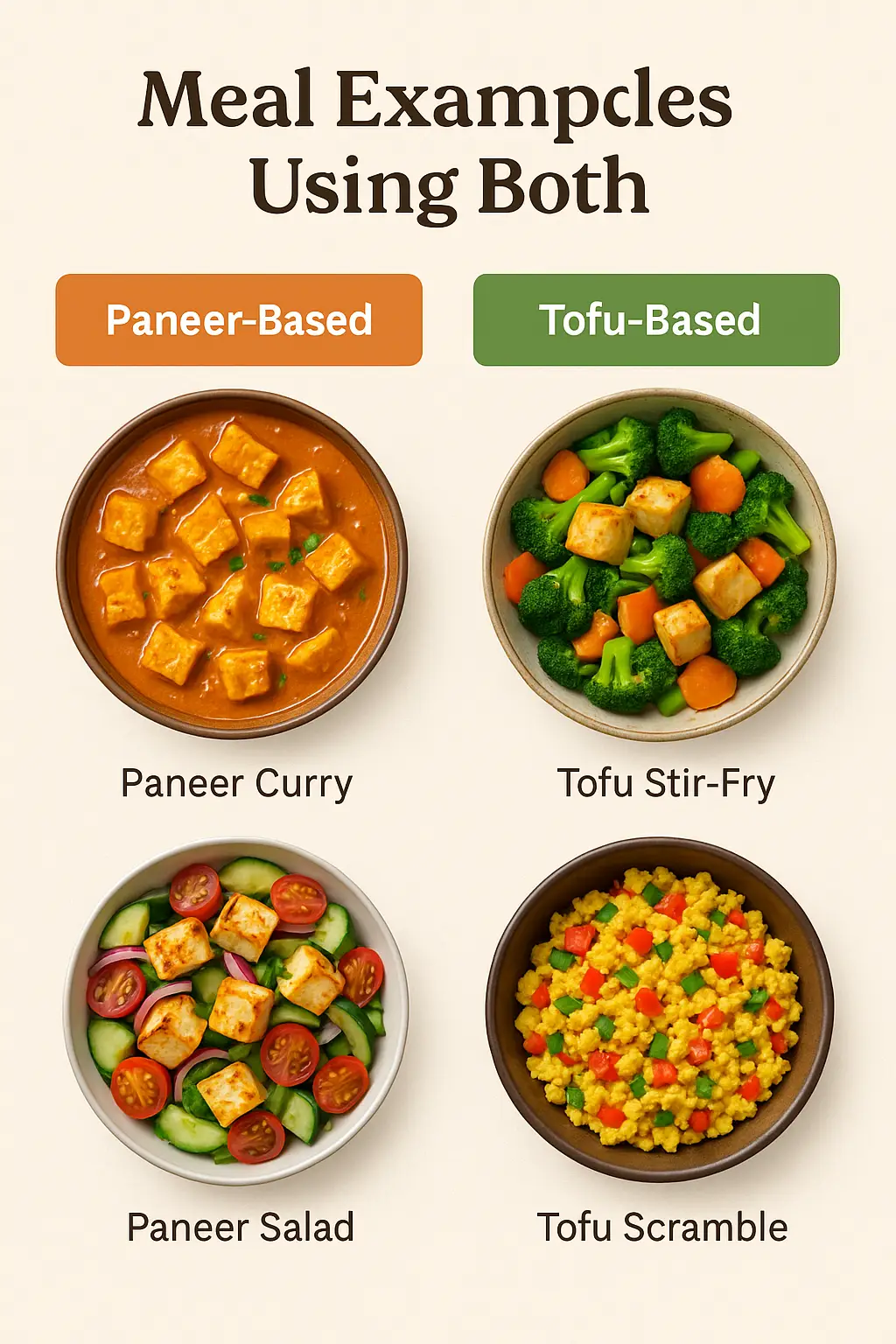Paneer vs Tofu: Nutrition, Protein Comparison, and Healthier Choice
Published On : 11th Jul 2025
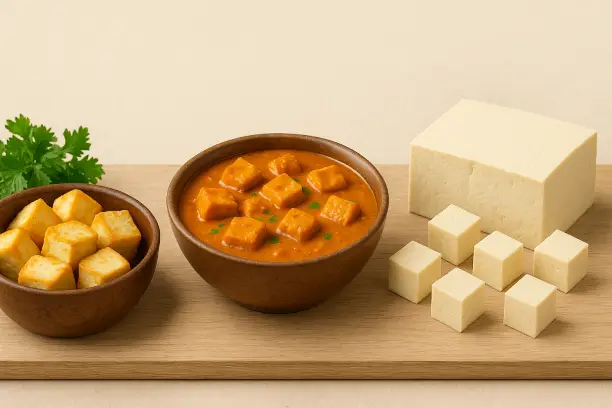
When building a high-protein diet—especially as a vegetarian or someone reducing meat consumption—paneer and tofu often come up as the top contenders. Both are widely used in fitness meal plans, but which one is better for your health and gains?
Here, we break down the nutritional value, protein content, fitness benefits, and potential drawbacks of both paneer and tofu. Whether your goal is muscle gain, fat loss, or simply eating cleaner, this deep dive will help you make the right choice.
What is Paneer?
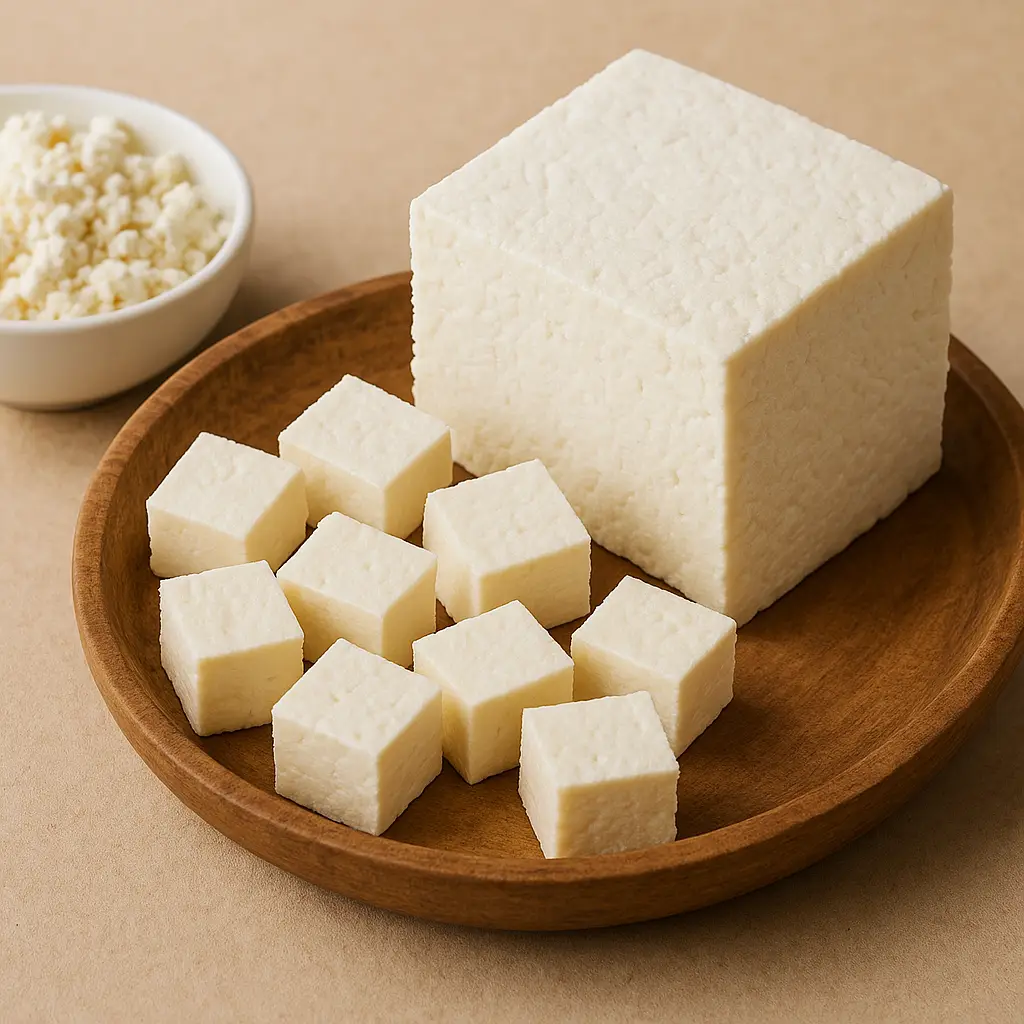
Paneer, often called Indian cottage cheese, is a fresh cheese made by curdling hot milk with a food acid like lemon juice, vinegar, or yogurt. Unlike aged cheeses, paneer is non-fermented, unaged, and non-melting, making it ideal for grilling, frying, or adding to curries.
- It is a rich source of dairy protein and is widely used in Indian and South Asian cuisines.
- Since it’s made from milk, it contains casein protein, which digests slowly and aids muscle recovery over time.
- Paneer is a vegetarian-friendly source of complete protein but is not suitable for vegans.
What is Tofu?
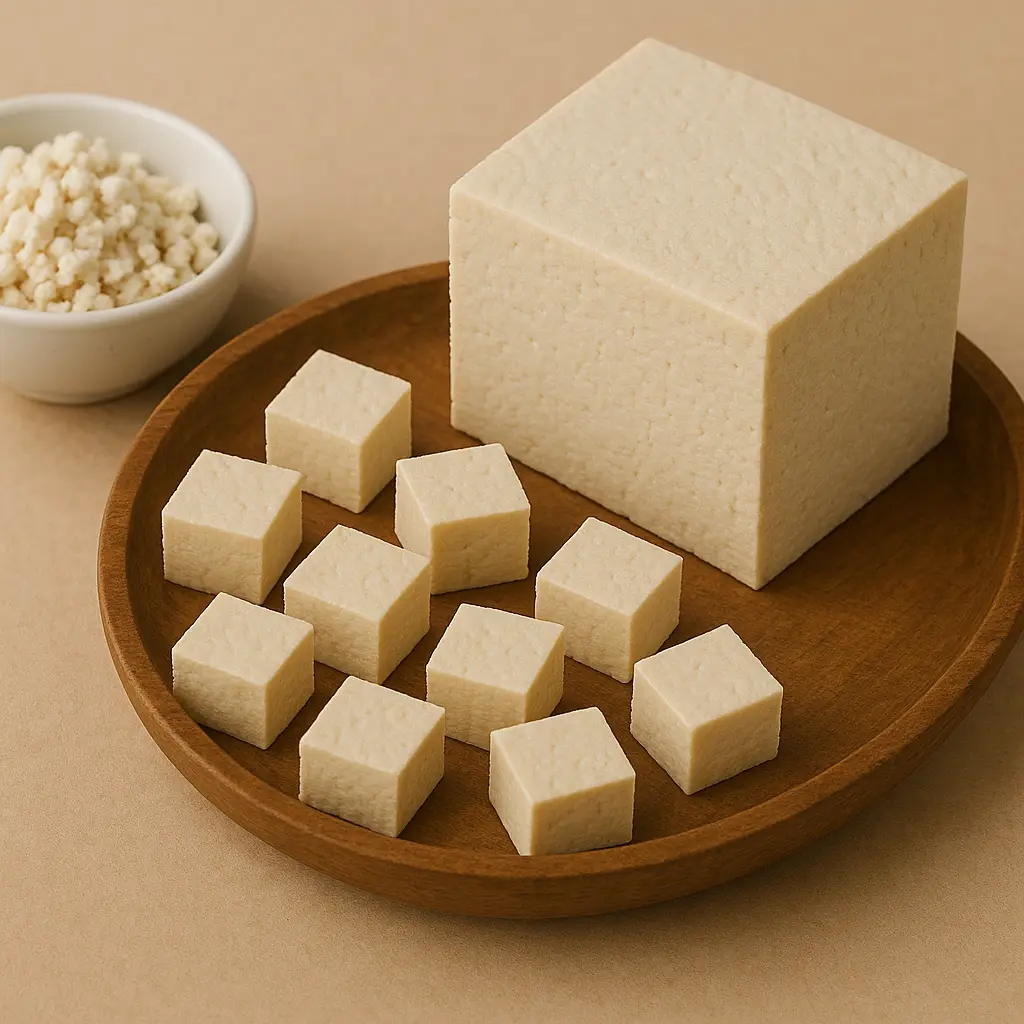
Tofu, also known as bean curd, is a soy-based product made by coagulating soy milk and pressing the resulting curds into solid white blocks of varying softness—silken, soft, firm, or extra firm.
- Tofu originated in China over 2,000 years ago and is now a staple protein in vegan and vegetarian diets worldwide.
- It’s entirely plant-based and made from soybeans, making it suitable for vegans and vegetarians alike.
- Tofu is a complete protein, containing all nine essential amino acids, and is naturally low in calories and fat.
🔍 Nutrient Breakdown and Fitness Impact
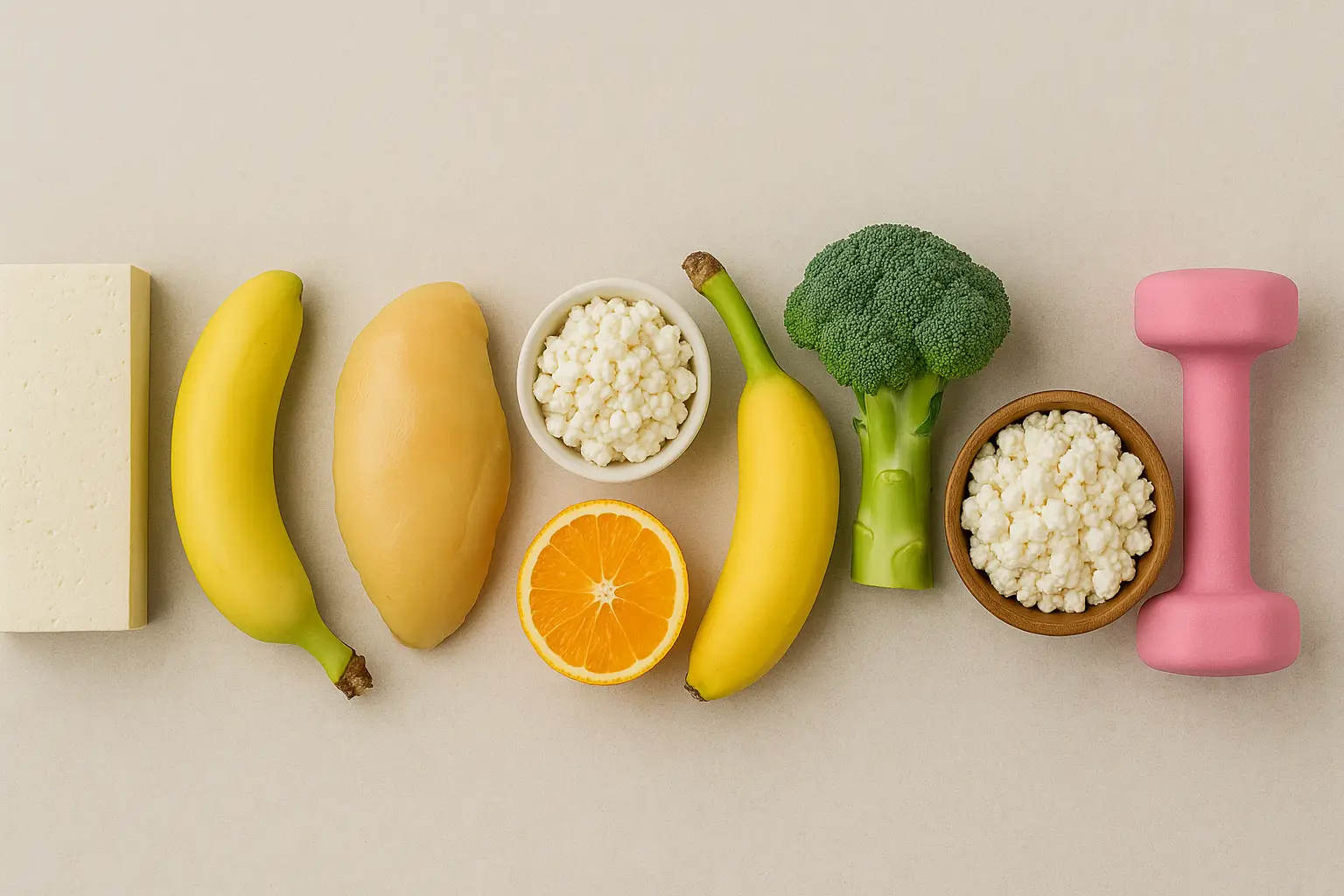
- Calories:
- Paneer packs more than 3x the calories of tofu. This is beneficial for weight gainers and bodybuilders, but not ideal if you're trying to cut fat.
- Tofu is significantly lighter and great for calorie-controlled diets.
- Protein:
- Paneer has more than double the protein content of tofu, making it highly effective for muscle synthesis.
- Tofu provides clean plant protein, which is easier to digest and suitable for vegan fitness diets.
- Fat:
- The fat in paneer is largely saturated, which if consumed in excess, may contribute to increased cholesterol.
- Tofu contains heart-healthy unsaturated fats (including omega-3), supporting hormonal balance and metabolic health.
- Carbohydrates:
- Both are very low in carbs, which is helpful for keto, low-carb, and diabetic-friendly diets.
- Tofu has a slightly higher fiber content, which aids digestion.
- Calcium:
- While both are rich in calcium, calcium-set tofu often surpasses paneer, making it great for bone density and joint health, especially in vegans.
- Cholesterol:
- Paneer contains dietary cholesterol, which is fine in moderation but could raise LDL if consumed in excess.
- Tofu is cholesterol-free, making it a better choice for those with heart disease risk or high cholesterol levels.
- Lactose:
- Paneer is a dairy product, so those with lactose intolerance or dairy sensitivities should avoid it.
- Tofu is completely lactose-free and safe for most people with digestive issues.
Paneer vs Tofu: 7 Key Fitness-Based Comparisons
When it comes to choosing between paneer and tofu for a fitness-focused diet, the decision depends on more than just protein count. Factors like calorie density, fat type, digestibility, and cooking versatility can significantly impact your goals—whether you're aiming to build muscle, lose fat, or maintain a healthy lifestyle.
Below, we compare 7 critical aspects of paneer and tofu that every fitness enthusiast, athlete, or health-conscious eater should consider:
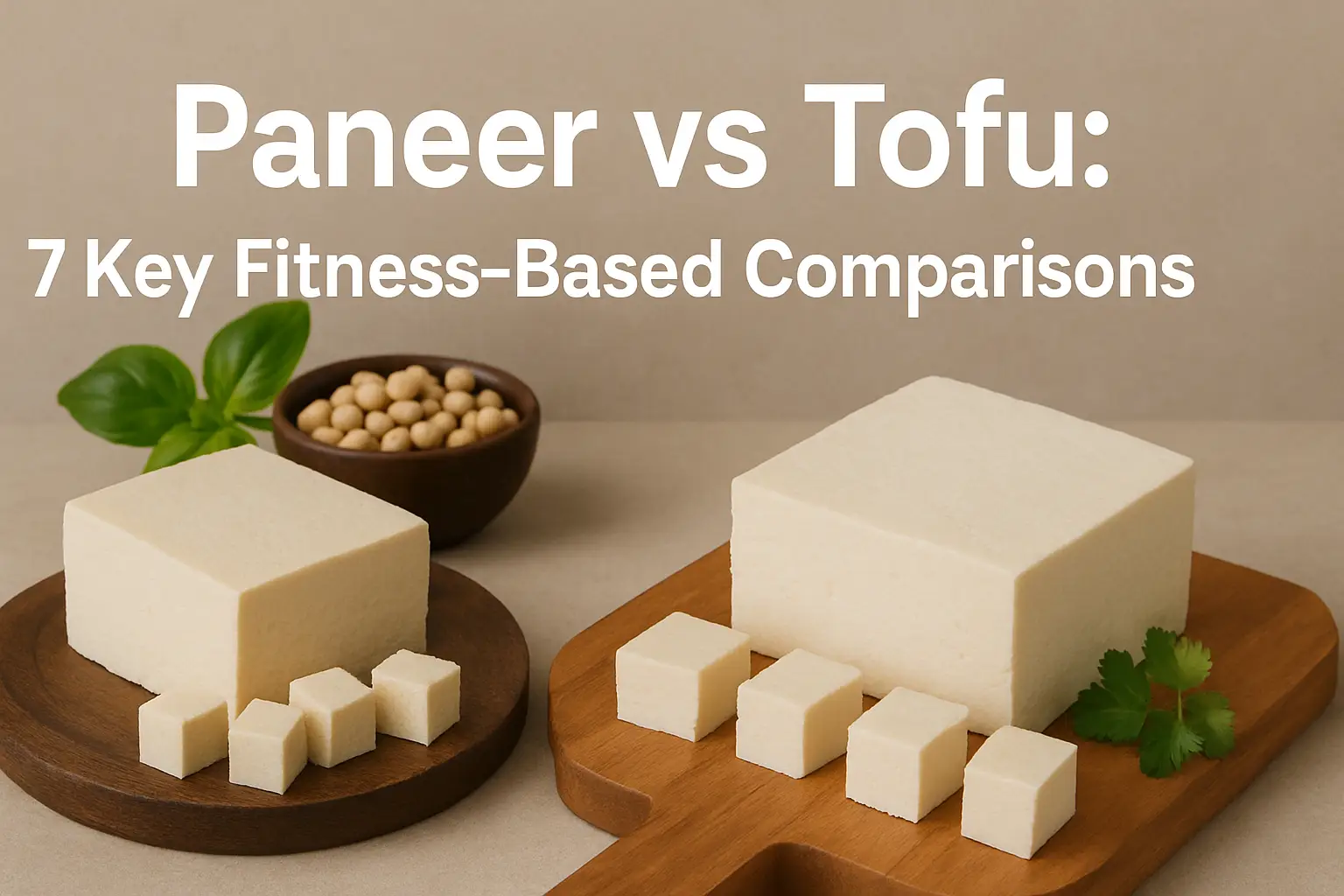
- Protein Quality: Muscle Building Comparison:
- Paneer is a dairy-based complete protein, rich in casein, which digests slowly. This makes it great for sustained muscle repair, especially when consumed before bed.
- Tofu, made from soybeans, is also a complete protein, containing all 9 essential amino acids. While lower in protein per gram than paneer, it’s easily digestible and ideal for post-workout recovery when paired with carbs.
- Winner: Tie
✔ Paneer for slow-digesting protein
✔ Tofu for lean, plant-based gains
- Fat Content: Good vs Bad Fats:
- Paneer contains more saturated fat. While it does have some beneficial fats, excess saturated fat can increase cholesterol levels if not moderated.
- Tofu is low in saturated fat and rich in heart-healthy unsaturated fats and omega-3s, making it more suitable for those targeting weight loss or cardiovascular health.
- Winner: Tofu
✔ Better for heart health and weight management
- Digestibility and Allergies:
- Paneer contains lactose, which can be a problem for lactose-intolerant individuals.
- Tofu is naturally lactose-free and often easier on the stomach. However, soy is a common allergen for some.
- Winner: Depends on personal tolerance
✔ Tofu for lactose-intolerant individuals
✔ Paneer for those avoiding soy
- Micronutrients and Bone Health:
- Paneer is rich in calcium, phosphorus, and vitamin B12, which are essential for bone strength and nerve health.
- Tofu, especially calcium-set tofu, can actually provide more calcium than paneer, making it a strong contender for improving bone density in vegans.
- Winner: Slight Edge to Tofu
✔ Higher calcium with zero cholesterol
- Weight Loss & Caloric Density: If you're trying to lose weight
- Paneer has significantly more calories and fat, so portion control is key.
- Tofu is much lower in calories, making it ideal for low-calorie, high-volume diets.
- Winner: Tofu
✔ Low in calories, high in satiety
- Muscle Gain & Bulking: If you're bulking
- Paneer is calorie-dense and protein-rich, perfect for a caloric surplus.
- Tofu works well too, but may need to be consumed in larger quantities or combined with other protein sources.
- Winner: Paneer
✔ Ideal for mass-building diets
- Cooking & Versatility:
- Paneer is firm, grillable, and holds shape well in Indian-style cooking. However, it doesn't absorb sauces as well.
- Tofu absorbs marinades and flavors, making it more versatile in global cuisines—Asian stir-fries, smoothies, scrambles, etc.
- Winner: Tofu
✔ More versatile for various cuisines
Nutritional Snapshot: Paneer vs Tofu (Per 100g)
Here’s a detailed comparison of the key nutrients in paneer and tofu, along with what they mean for your fitness, health, and diet goals:
| Nutrient |
Paneer (Cottage Cheese) |
Tofu (Soybean Curd) |
What This Means |
| Calories |
~265 kcal |
~76 kcal |
Paneer is more calorie-dense, making it better for bulking; tofu is ideal for fat loss or maintenance. |
| Protein |
~18g |
~8g |
Paneer provides more protein per 100g, ideal for muscle gain. Tofu offers plant-based protein for light, clean meals. |
| Fat |
~20g |
~4.8g |
Paneer contains high saturated fat; tofu has healthy unsaturated fats—better for heart health. |
| Carbohydrates |
~1.2g |
~1.9g |
Both are low-carb, making them keto- and diabetic-friendly. Tofu has slightly more fiber content. |
| Calcium |
High (~480mg) |
Very High (~683mg) |
Both support bone strength; tofu (especially calcium-set tofu) often provides more calcium than dairy. |
| Cholesterol |
Present (~56mg) |
Zero |
Paneer has dietary cholesterol; tofu is cholesterol-free—great for cardiovascular health. |
| Lactose |
Present |
None |
Tofu is safe for lactose-intolerant individuals; paneer may cause discomfort for those sensitive to dairy. |
Conclusion - Which Is Healthier
Both paneer and tofu are healthy protein sources, but the best choice depends on your fitness goal, diet preference, and body needs:
- Choose Paneer if:
- You’re looking to bulk up
- You’re not lactose-intolerant
- You want slow-digesting protein
- Choose Tofu if:
- You want to cut fat or maintain weight
- You’re vegan or lactose-intolerant
- You’re focusing on heart health
Many athletes and fitness enthusiasts rotate between the two. You can:
- Eat paneer at night for sustained muscle recovery.
- Use tofu post-workout or in low-calorie meals during the day.
This hybrid approach ensures amino acid diversity, gut health, and long-term sustainability.
Instead of picking one over the other, it’s smarter to incorporate both paneer and tofu strategically based on your goals, tolerance, and preferences. Both can be part of a well-balanced, protein-rich, and nutrient-dense fitness diet.
Frequently Asked Questions
Paneer contains nearly double the protein of tofu per 100g. Paneer offers around 18g of protein, while tofu provides about 8g, making paneer a better choice for muscle-building.
Yes! Tofu is low in calories and fat, making it excellent for calorie-controlled diets. It’s also rich in nutrients and helps you stay full longer.
Paneer is relatively high in fat, especially saturated fat, as it’s made from full-fat milk. This makes it calorie-dense, which is good for bulking but should be consumed in moderation for fat loss.
People with lactose intolerance should avoid paneer unless it’s made from lactose-free milk. Tofu, being dairy-free, is a safer alternative.
Tofu is 100% plant-based and ideal for vegans. Paneer, being a dairy product, is not suitable for a vegan diet.
Both are excellent sources of calcium, but calcium-set tofu often has slightly more. It’s great for bone health and preventing deficiencies in dairy-free diets.
Paneer is better suited for muscle gain due to its higher protein and calorie content. However, tofu can be used in larger portions in vegan muscle-building diets.
Yes, in moderation and when cooked healthily. Balance is key.





